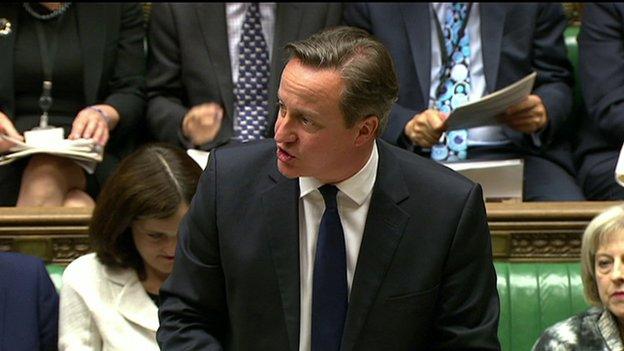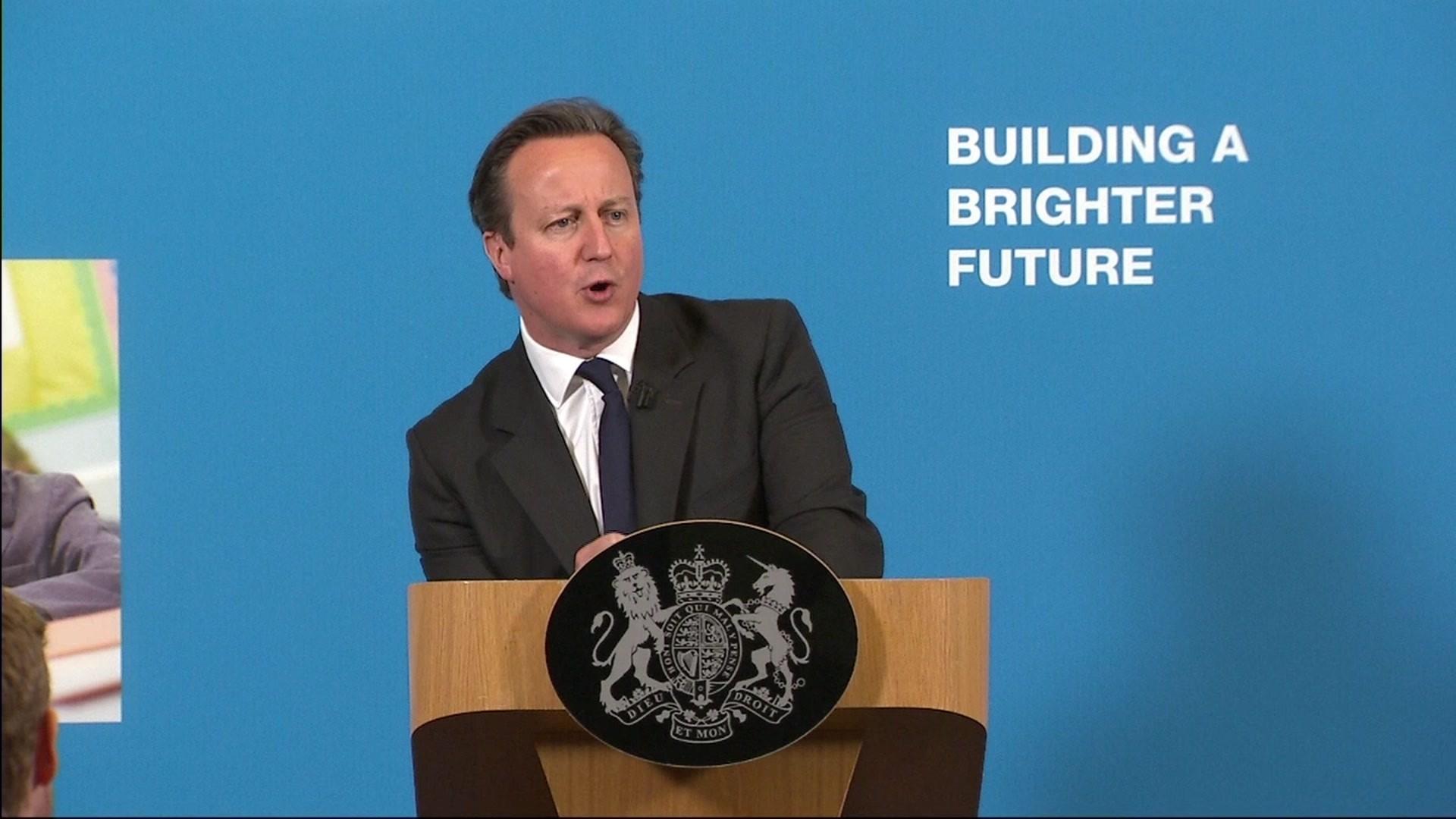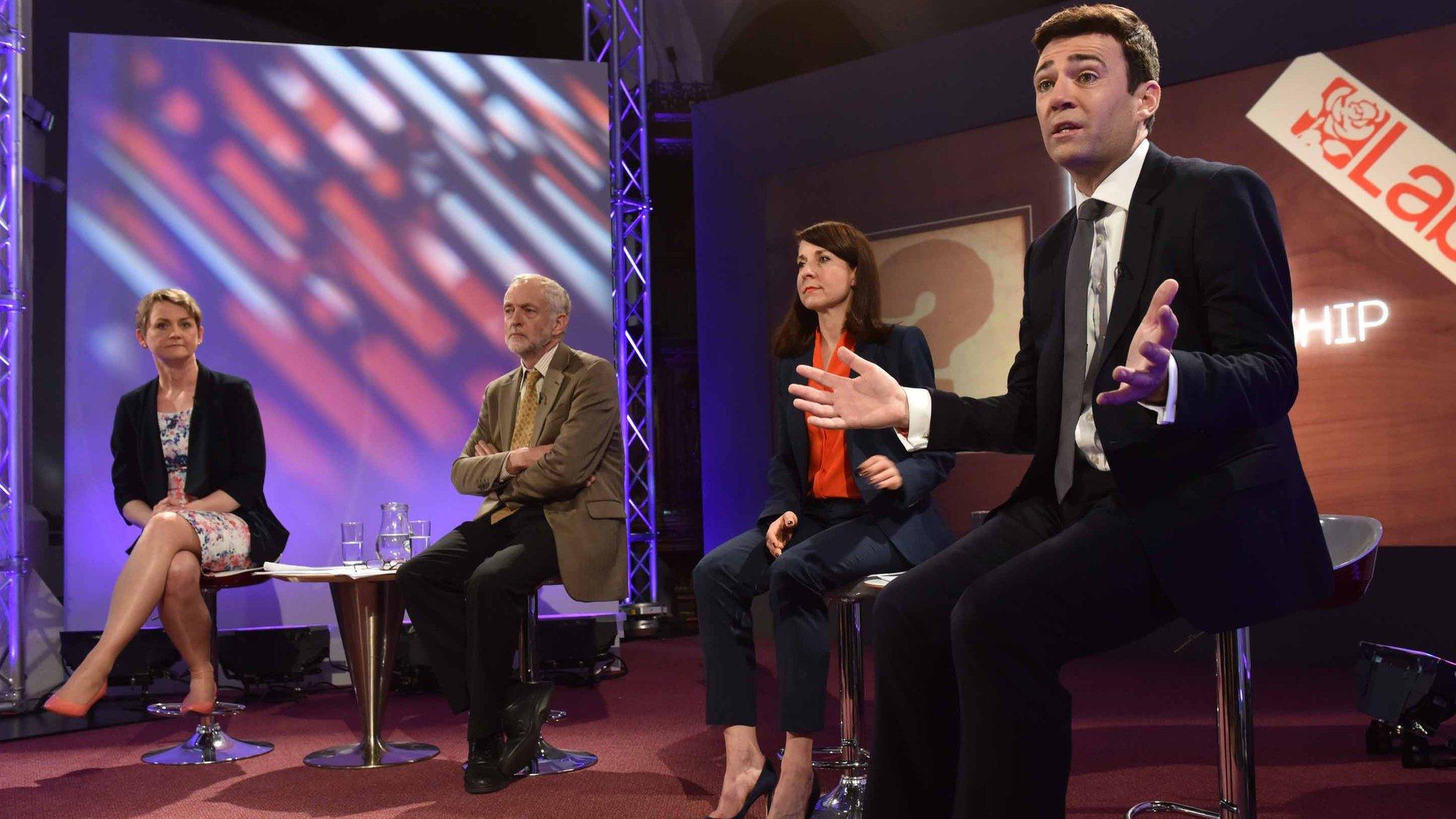Calais chaos – why it scares the prime minister
- Published

If looking at the pictures of young men breaking into lorries watched by helpless lorry drivers, worried onlookers and apparently impotent police officers didn't convince you…
If a late night exclusive handed to The Sun last night about a new immigration "enforcement team" didn't do it …
Or the early morning tweet from the prime minister that he's met the home secretary wasn't enough …
Perhaps today's announcement of more men, more dogs and more security fences to be sent from Britain to Calais will have done it.
The story of Calais is an enormous headache for the prime minister and it couldn't have come at a worse time.
Just as the prime minister is about to formally table his proposal to re-negotiate Britain's relationship with the EU at a leader's summit he is confronted by images that highlight the issue that does the most to alienate voters from Europe - immigration.
Flow of humanity
Ah, you may say, but these migrants aren't from Europe. They're from the war and crisis torn zones of North Africa and Asia - they're Libyans and Somalis, Afghans, Syrians and Iraqis.
Ask yourself this, though. Where are they trying to come to Britain from? France, of course but, before they reached, Calais they had to come through other EU countries. If they came over the sea from Africa they probably came through Italy or Greece. If over land they may have come through Hungary which, believe it or not, is currently taking in more asylum seekers than Italy.
In other words this crisis risks being seen as not an isolated issue about the Anglo-French border but as yet another another symptom of Europe's failing immigration system which, before the past few days, was highlighted by so many tragic deaths in the Mediterranean.
This flow of humanity which the authorities in so many countries illustrate the pull of Europe and Britain in particular for many whose lives are blighted by war and persecution or just - just? - by poverty, disease and hardship who can now see and hear about the prospect of a better life on their smartphones or on Facebook or Twitter.
'I get it'
It highlights the challenges posed by a wealthy bloc of countries whose immigration controls are only as strong as the weakest link in the borders of 28 nations and which allows people who make it through to pass their way across a continent with minimal or no checks at all.
All the polling evidence shows that what made immigration the issue people cared about most again and again in recent years was not opposition per se to allowing people to come to the UK. It was the widespread sense that the system was out of control and, therefore, unfair.
Listen to the voices of bewilderment and anger in Calais and Dover yesterday and you'll see that this story has the capacity to cut through in the way few have since the general election.
That is why the prime minister spoke today of "totally unacceptable scenes" which was his way of trying to say - "I get it".
- Published22 June 2015

- Published17 June 2015
